How Space Policy ISDC 2026 Connects Global Issues With the Washington DC Region
Space policy ISDC 2026 represents one of the most influential components of this year’s International Space Development Conference. With the event held in McLean, Virginia — just minutes from the heart of the nation’s capital — the conference offers a uniquely powerful environment for examining regulatory frameworks, global cooperation, national strategy, and the future of the commercial space industry. The proximity to Washington D.C. policymakers and the Northern Virginia aerospace corridor transforms these policy sessions into dynamic, high-impact gatherings that blend technical insight with real-world decision-making.
As space exploration accelerates and commercial activity expands, the space policy ISDC 2026 track emerges as essential for shaping a sustainable, responsible, and thriving space-faring future.
Why Space Policy ISDC 2026 Matters More Than Ever
The modern space environment is rapidly evolving. Countries and companies are launching satellites at record pace, competing to reach the Moon, building space stations, and investing in commercial lunar services. Because the space domain is growing so quickly, laws, guidelines, and international agreements must evolve as well.
At ISDC 2026, the space policy focus is centered on discussions such as:
- Updating global treaties for lunar and Martian activity
- Clarifying space resource rights and extraction laws
- Supporting responsible commercial launch operations
- Mitigating space debris and protecting orbital environments
- Strengthening cybersecurity across space infrastructure
- Expanding peaceful international cooperation
These discussions are part of the official ISDC program, which highlights “Space Policy & International Cooperation” as one of the foundational conference tracks.
When these conversations take place in the Washington region — a nexus of federal agencies, global embassies, contractors, and policy groups — they gain amplified visibility and influence.
The Washington D.C. Policymakers Who Shape Today’s Space Landscape
One of the defining strengths of the space policy ISDC 2026 track is its close access to the people and institutions that actively shape space governance.
Nearby organizations include:
- NASA Headquarters
- The Federal Aviation Administration (FAA) Office of Commercial Space Transportation
- The National Space Council
- The U.S. Space Force and Pentagon agencies
- Department of Commerce’s Office of Space Commerce
- Dozens of embassies involved in multinational space agreements
- Aerospace policy think tanks such as CSIS and Aerospace Corporation’s policy centers
This environment makes ISDC 2026 unlike any other space conference. Panelists, decision-makers, and government representatives can easily attend, providing direct perspectives on evolving policy questions.
For many attendees, gaining this access is one of the most valuable parts of participating in ISDC — and it is available precisely because the conference is being held in McLean, minutes from D.C.
How the Northern Virginia Aerospace Corridor Elevates Policy Dialogue
Complementing the Washington policy environment is the powerful Northern Virginia aerospace corridor, a region packed with:
- Aerospace and defense companies
- Commercial satellite firms
- Space cybersecurity organizations
- Launch service providers
- Data, AI, and communications-technology innovators
This corridor contributes significantly to U.S. space capability, and many of its companies influence regulatory strategy, mission planning, investment decisions, and national security initiatives.
When these industry leaders participate in the space policy ISDC 2026 track, attendees gain deep insight into how legislation and regulation affect real-world operations. The convergence of policymakers, commercial leaders, engineers, and researchers creates an unmatched environment for productive, solution-focused dialogue.
The Global Importance of Space Policy & International Cooperation
Space is no longer a domain limited to a few nations. It has become a global marketplace, a scientific frontier, and a shared responsibility.
The space policy ISDC 2026 track emphasizes how nations must collaborate — and sometimes negotiate — in areas such as:
- Access to lunar territories
- Sharing scientific data
- Coordinating satellite networks
- Regulating private missions
- Establishing safe operations standards
- Ensuring peaceful use of space
Because ISDC attracts attendees from around the world, the Washington-region venue enables diplomatic conversations that might not occur in other locations. With embassies, international agencies, and global space organizations nearby, ISDC 2026 serves as a meeting point for perspectives that cross borders and strengthen cooperation.
Why McLean, Virginia Is the Strategic Backdrop for Space Policy ISDC 2026
Hosting the conference in McLean offers several advantages:
- Minutes from the headquarters of key U.S. space agencies
- A short trip to Capitol Hill, where national space laws are debated
- Close to corporate campuses of major aerospace companies
- Easily accessible for international delegations
- Supported by the infrastructure of the Washington DC metro region
This creates an immersive environment where policy discussions are not theoretical — they are rooted in the realities of the organizations shaping the future.
The Hilton McLean Tysons Corner, the ISDC 2026 venue, further supports these conversations with professional meeting spaces, breakout rooms, and an environment conducive to deep thinking and collaboration.
How Attendees Can Benefit from the Space Policy ISDC 2026 Sessions
Those who attend the space policy track will walk away with:
- Clear understanding of evolving international space agreements
- Insight into how regulatory decisions impact commercial missions
- A deeper grasp of cybersecurity, debris mitigation, and sustainability
- Direct access to policymakers, advisors, and regulatory leaders
- Networking opportunities with companies shaping the policy ecosystem
Whether a researcher, entrepreneur, advocate, or government representative, attendees will find that the space policy ISDC 2026 sessions offer knowledge and connections that shape careers and influence future projects.
Final Outlook: Space Policy ISDC 2026 Pushes the Conversation Forward
As space becomes increasingly important for science, national security, communications, and commerce, effective policy becomes essential. ISDC 2026 brings these discussions into sharp focus — supported by the power of the Washington region and enriched by the expertise of global attendees.
The combination of strategic location, diverse voices, and timely topics ensures that the space policy ISDC 2026 track will be one of the most pivotal components of the conference.
Ready to Explore the Space Policy ISDC 2026 Track?
→ Visit the ISDC Program page to discover the latest speakers and sessions.
→ Check out our Registration Page here to become involved!

